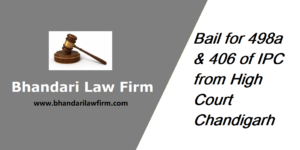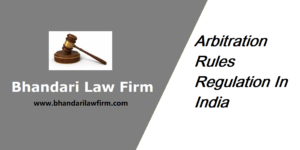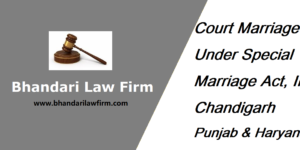Central Administrative Tribunal Chandigarh Lawyers
The Central Administrative Tribunal was established in the year of 1985 through the Administrative Tribunals Act under Article 323A of the Constitution of India. It is a statutory body and was brought to force via the 42nd Constitutional Amendment of the Constitution. The tribunal largely adjudicates the matters that are connected with the recruitment and conditions of service of personnel in public service in India. Central Administrative Tribunal Chandigarh Lawyers.
The tribunals under Article 323A can only be constituted by the Parliament and not by the individual State Legislatures. Article 323A is exclusively for the public service matters.
There are 66 Hon’ble members including all the Benches out of which 33 are Judicial Members, including the Hon’ble Chairman and there 33 are Administrative Members.
The CAT exercises original jurisdiction over service matters concerned with the following:
- Members of the all-India services.
- Persons appointed to any civil service of the Union or civil post under the Union.
- Civilians appointed to any defence services or posts related to defence.
- Employees of PSUs or public sector organisations notified by the government.
The following does not fall under its jurisdiction:
- Members of the defence forces and officers
- The Supreme Court staffs
- The Parliament’s secretarial staff
The Composition of CAT:
The members constituting CAT are from legal and administrative backgrounds to provide the benefit of expertise in both domains. Central Administrative Tribunal Chandigarh Lawyers.
Their qualifications and retirements are as given under:
- Chairperson; (tenure of 5 years or 65 years of age, whichever is earlier)
- Must be an SC judge or the Chief Justice of a High Court.
- Vice-chairperson (tenure of 5 years or 62 years of age, whichever is earlier)
All of them are appointed by the President of India.
Central Administrative Tribunal Chandigarh Lawyers.
The following are the functions of the tribunal:
- The Tribunal has been conferred the power to exercise the same jurisdiction and authority regarding contempt of itself as a High Court.
- Appeals against the orders of a tribunal could be made in the High Court
- The CAT has 17 Benches in the country as well as 21 Circuit Benches.
- The CAT Principal Bench deals with matters of the Government of the National Capital Territory of Delhi.
- In deciding cases, the Tribunal is guided by the principles of natural justice. It is not bound by CPC.
- The central government decides the salaries, emoluments and conditions of service of the Tribunal’s employees.
- A petitioner can either appear in person before the Tribunal or take the help of a legal practitioner.
Central Administrative Tribunal Chandigarh Lawyers.
This Administrative Tribunal is different from the ordinary courts of law in respect of its jurisdiction and procedure. It is free from restrictions of many technicalities of the Courts. The procedures in the tribunal are simple and in case of an aggrieved government employee may also appear personally before the Tribunal.
An Original Application can be filed by remitting a nominal fee of just Rs. 50/- before the Tribunal. A provision has been made in the Rules that if the Tribunal is satisfied that an applicant is unable to pay the prescribed fee on the ground of indigence, then in such case it may exempt such an applicant from the payment of fee.
The Tribunal is guided by the principles of natural justice in deciding cases. It is empowered to frame its own rules of procedure and practice. Under the Central Administrative Tribunal (Procedure) Rules, 1987 and Central Administrative Tribunal Rules of Practice, 1993 have been notified to ensure smooth functioning if the Tribunal.
Under Section 17 of the Administrative Tribunal Act, 1985, it has been conferred with the power to exercise the same jurisdiction and authority in respect of contempt as that of a High Court. Previously, the decision of the Tribunal could be challenged before the Hon’ble Supreme Court by filing of a Special Leave Petition. However, after the Supreme Court’s decision in L. Chandra Kumar’s case, the orders of Central Administrative Tribunal are now being challenged by the way of Writ Petition under Article 226/227 of the Constitution before the respective High Court in whose territorial jurisdiction the Bench of the Tribunal is situated.
The employees of the Central Administrative Tribunal are required to discharge their duties under the general superintendence of the Chairman. Salaries and Allowances and Conditions of Service of the officers and other employees of the Tribunal are specified by the Central Government. Pursuant to these provisions, the Central Government has notified the Central Administrative Tribunal Staff (Condition of Service) Rules, 1985.
The Central Administrative Tribunal is a dynamic organization with increasing jurisdiction, responsibilities and work load. Recently, the Central Administrative Tribunal has initiated an Scheme for modernization and computerization of its activities through a new dynamic website, Case Information System, Video Conferencing and so on. This project, on completion, will facilitate the litigants, lawyers, researchers and public in general to access the orders and judgments of the Tribunal besides providing an efficient maintenance, management of records and speedy disposal of cases.
(Know More About Our Service Matters Practice)
The issues on which any employee can approach CAT:
- Recruitment disputes, disputes with regard to interpretation of recruitment rules
- Appointment disputes
- Suspension disputes, misconduct issues
- Charge sheet and departmental inquiry
- Issue of memo, warning letter and all issues related to ACR
- Promotion and demotion issues
- Transfer and posting issues
- Pay scale fixation and grant of MACP, FNSG issues
- ACR issues and matters
- PCA Act matters related to charges of PCA
- CVC matters
- CBI matters
- All sorts of punishment matters
- Removal, termination, discharge, dismissal matters
- Retirement and VRS issues, fixation of pension issues
- All the other issues and incidences related to service
- All the issues related to interpretation of FRSR, CCA, CCS, OMs of DOPT, circulars and all other related documents
Note: For any further information or any query you may contact us on 9855677966 or via email info@bhandarilawfirm.com



